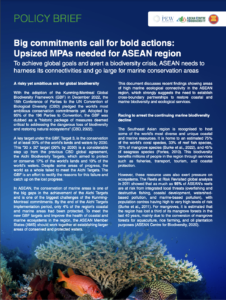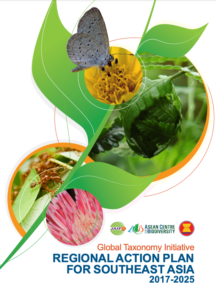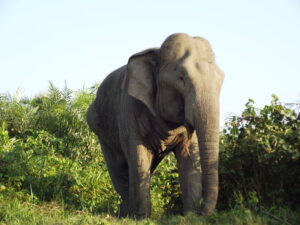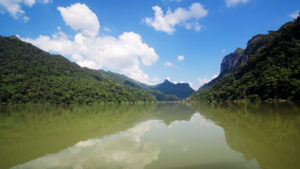HWS lies in a transition zone of three biodiversity hotspots relevant to clouded leopards and tigers: Himalaya, Indo-Burma and Mountains of Southwest China. It is the southernmost Key Biodiversity Area of Northern forest Complex.
Biodiversity Data:
Biodiversity Data:
-
About Us
-
Flagship Initiatives
-
Programmes
-
News
-
Resources
- Biodiversity Conservation and Management of Protected Areas in ASEAN (BCAMP)
- Mobilising Stakeholders to Inform the Development of a Science-based Decision Support System for Coastal Wetlands in the ASEAN Region
- Understanding the Circumstances towards Achieving the Marine Protected Areas Target in the ASEAN Region
- Improving Biodiversity Conservation of Wetlands and Migratory Waterbirds in the ASEAN Region – Phase I
- Phase II of the Strategy of the CBD Secretariat on Protected Areas in East and Southeast Asian Countries (Small-scale Funding Agreement between the Convention on Biological Diversity and the ASEAN Centre for Biodiversity)
Menu
- Biodiversity Conservation and Management of Protected Areas in ASEAN (BCAMP)
- Mobilising Stakeholders to Inform the Development of a Science-based Decision Support System for Coastal Wetlands in the ASEAN Region
- Understanding the Circumstances towards Achieving the Marine Protected Areas Target in the ASEAN Region
- Improving Biodiversity Conservation of Wetlands and Migratory Waterbirds in the ASEAN Region – Phase I
- Phase II of the Strategy of the CBD Secretariat on Protected Areas in East and Southeast Asian Countries (Small-scale Funding Agreement between the Convention on Biological Diversity and the ASEAN Centre for Biodiversity)
Menu
- Institutional Strengthening of the Biodiversity Sector in ASEAN I (ISB I)
- Institutional Strengthening of the Biodiversity Sector in ASEAN II (ISB II)
- Taxonomic Capacity Building on DNA Barcoding of Common Vascular Plants in the Tropics
- Development of the GTI Regional Action Plan for Southeast Asia 2016-2020 and Capacity Development on the Taxonomy of High Elevation Vascular Plants
Menu
- Institutional Strengthening of the Biodiversity Sector in ASEAN I (ISB I)
- Institutional Strengthening of the Biodiversity Sector in ASEAN II (ISB II)
- Taxonomic Capacity Building on DNA Barcoding of Common Vascular Plants in the Tropics
- Development of the GTI Regional Action Plan for Southeast Asia 2016-2020 and Capacity Development on the Taxonomy of High Elevation Vascular Plants
Menu
Menu
- Capacity Building Towards Implementing the Nagoya Protocol on Access and Benefit Sharing, the City Biodiversity Index and the Strategic Plan on Biodiversity
- Biodiversity-based Products (BBP) as an Economic Source of the Improvement of Livelihoods and Biodiversity Protection
- Building capacity of countries in support of the development and implementation of National ABS Framework
- ABS Regional Capacity Building Project: Building Capacity for Regionally Harmonized National Processes for Implementing CBD Provisions on Access to Genetic Resources and Sharing of Benefits
- Promoting Sustainability and Market Values of Biodiversity-based Products (BBPs) through Sustainable Protocols and Participatory Certification Processes
- Small Grants Programme by the ASEAN Centre for Biodiversity
Menu
- Capacity Building Towards Implementing the Nagoya Protocol on Access and Benefit Sharing, the City Biodiversity Index and the Strategic Plan on Biodiversity
- Biodiversity-based Products (BBP) as an Economic Source of the Improvement of Livelihoods and Biodiversity Protection
- Building capacity of countries in support of the development and implementation of National ABS Framework
- ABS Regional Capacity Building Project: Building Capacity for Regionally Harmonized National Processes for Implementing CBD Provisions on Access to Genetic Resources and Sharing of Benefits
- Promoting Sustainability and Market Values of Biodiversity-based Products (BBPs) through Sustainable Protocols and Participatory Certification Processes
- Small Grants Programme by the ASEAN Centre for Biodiversity





























